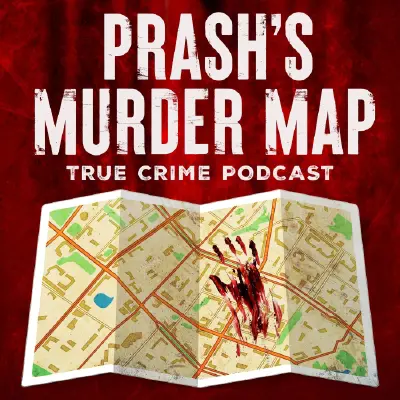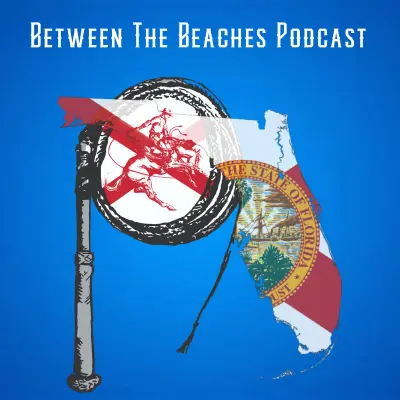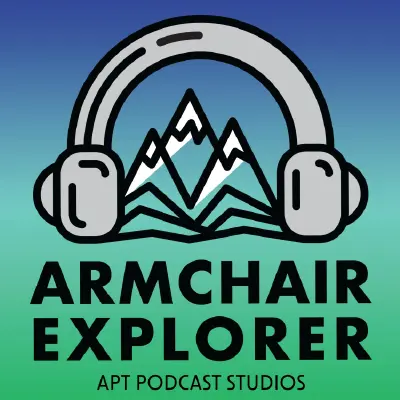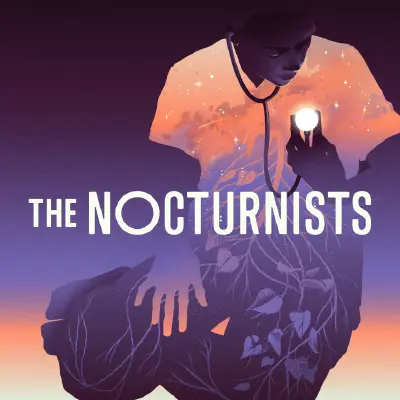Podcasts about Documentary
Episodes about Documentary
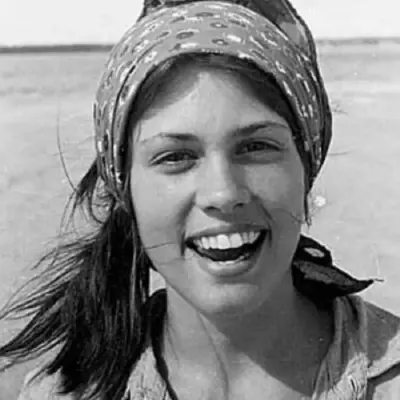
Jul 09, 2025
72 | Murder on a Tropical Island: The True Crime Case of Deborah Gardner
Prash's Murder Map: True Crime Podcast ❭
Deborah Gardner joined the Peace Corps in 1976, hoping to make a positive impact in Tonga.She embraced the local culture and formed close bonds with the community.But one volunteer, Dennis Priven, developed a disturbing fixation.What followed would lead to tragedy and lasting controversy.Subscribe to my YouTube channel for video versions of the podcast:📺 youtube.com/@prashsmurdermap💡 Support me on Patreon to get ad-free audio episodeshttps://www.patreon.com/prashsmurdermap💰 Make a one-off contributionEvery little bit helps! If you'd like to make a one-time donation, you can do so via PayPal here: https://www.paypal.me/prashsmurdermap🎧 Listen to my new podcast Curious BritainExplore the mysteries, folklore, and forgotten stories of Britain. Listen now: https://linktr.ee/curiousbritainpodcast 🙏 Thank You!Your support means the world to me and helps keep Prash’s Murder Map alive. I truly appreciate it!Music:"Long Note Three", “Constance" Kevin MacLeod (incompetech.com) Licensed under Creative Commons: By Attribution 4.0 License http://creativecommons.org/licenses/by/4.0/"Melancholia" - Credit: Music: https://www.purple-planet.comES_Maximum state - murderSources:Weiss, Philip, ‘American Taboo: A Murder in the Peace Corps’, 2004, HarperCollinsCrimelibrary.org‘November Member Spotlight: Emile Robert Hons’, FriendsofTonga.org, https://www.friendsoftonga.org/cpages/emilehons‘Remembering the murder of PCV Deborah Gardner (Tonga)’, March 2023, Peace Corps Worldwide, https://peacecorpsworldwide.org/remembering-the-murder-of-pcv-deborah-gardner-tonga-2/
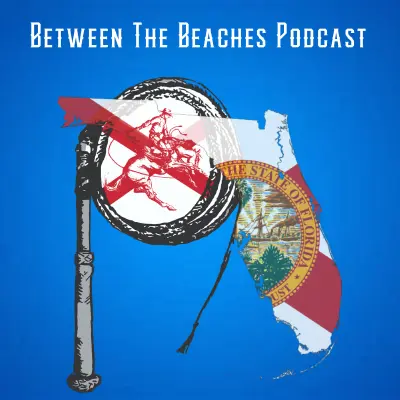
Jul 09, 2025
195. Elmo Johnston's Memories of Cowhuntin' And Cracker Livin'; with Jim Johnston
Between The Beaches Podcast ❭
We're back from our summer break with a conversation you don't want to miss. True friends are worth their weight in gold and our guest this week is one such individual. Jim Johnston seldom meets a stranger and has plenty of stories to share in his own right, but in this conversation we cover some fantastic stories and memories passed down by his dad, the late Elmo Johnston, and you won't find a much better encapsulation of our Old Florida heritage. Our topics range from Elmo's early days cow hunting to his transition into the earliest days of the sod business in Florida. From there, we also talk some Chalo Nitka history and get a highly entertaining glimpse into the early days of the Gladesmen culture and more. Tune in and get comfortable for a ride into parts of Florida's past that are fading fast.
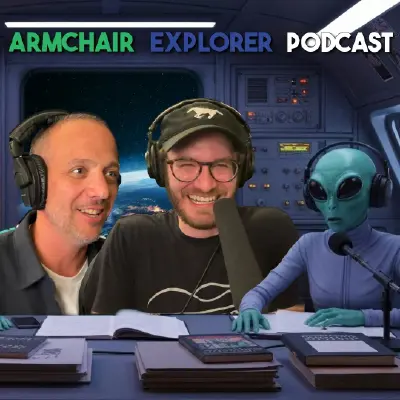
Jul 08, 2025
PATHWAYS July: UFO Parking, Shark Attacks, and Biking Around the World
Armchair Explorer: Travel and Adventure Inspiration ❭
Every month on Pathways, host Aaron Millar and producer Jason Paton crack open a few stories, play their favorite clips, and take you on a whirlwind preview of what’s coming up this month on Armchair Explorer. It’s part travel hangout, part behind-the-scenes, and a whole lot of part “wait, you did what?”
Special Offer: we’ve revived our NEWSLETTER! (scroll to the bottom of our homepage to signup)
And contact us for a free copy of our fearless leader Aaron Millar’s ebook:
The 50 Greatest Wonders of the World
Award-winning travel journalist Aaron Millar reveals the greatest wonders of the world and the insider secrets on how to see them. From where to catch the perfect sunrise over the Grand Canyon to how to swim up to the very edge of the Victoria Falls, this is a road map for discovering the greatest experiences of your life.
🌍 This Month on Pathways:
Around the World by Bike with Chris McCaffrey
Meet Chris McCaffrey, an adventurer from Boulder, Colorado, who biked across the world. Sounds epic already—but halfway through his 17-month journey, he caught a mystery illness that nearly ended it all. From pushing through a near-fatal illness to profound reflections on adventure and risk, his story hits hard and goes deep.
🦈 Surviving a Great White Shark Encounter
Our very own landlord (yep, you read that right), Patrick, drops by with a jaw-dropping tale—literally. While filming great whites off Guadalupe Island, a 21-foot shark ripped the cage apart with him still inside. It’s terrifying, intense, and weirdly philosophical. Bonus: He’s got a viral video and a calf tattoo to prove it.
👽 Discovering South America's Hidden Wonders with Dylan Thuras
Follow Atlas Obscura co-founder Dylan Thuras on a quest to discover South America’s hidden wonders. From the Last Incan Bridge and the Machu Picchu of the North to the Everlasting Lightning Storm and a statue of a squid fighting a whale the size of the statue of liberty, this is an epic ride through Colombia, Venezuela, Bolivia and Peru’s weirdest and wildest wonders. The stuff glittering in the shadows that you may never have heard of before, but you’ll be desperate to see after.
✈️ Travel & Misconceptions
We revisit past guests who shared their experiences traveling in places like Iran. Travel writers Pico Iyer and Drew Binsky reveal a truth that’s easy to forget: People are not their governments. From saintly ceremonies to warm hospitality, these are glimpses of humanity we don’t see in the headlines.
🌟 New Segments, Bad Puns & Surprises in the Studio
We introduce a few new segments, share laughs, bad puns (Jason, looking at you), and catch each other off guard. This is Armchair Explorer at its most unpredictable, unscripted, and fun.
This episode is brought to you by BetterHelp. Give online therapy a try at
betterhelp.com/ARMCHAIR and get on your way to being your best self.
🌏 Ready to Explore?If you're into real stories of epic places told by the people who’ve lived them, make sure to subscribe—that way you choose the adventure, not the algorithm.
📸 Instagram: @armchairexplorerpodcast
📘 Facebook: @armchairexplorerpodcast
Armchair Explorer is produced by Armchair Productions. Aaron Millar and Jason Paton presented the show, Charles Tyrie did the audio editing and sound design.
Learn more about your ad choices. Visit megaphone.fm/adchoices
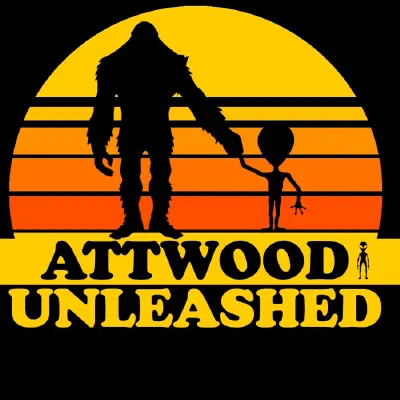
Jul 08, 2025
NO EPSTEIN CLIENT LIST! DEEP STATE SAYS! Musk v Trump & DOJ | AU 433
Shaun Attwoods True Crime Podcast ❭
LINK FOR LIAMS INSTA: / liam_james301092
MY BOOK LINKS: Who Killed Epstein? Prince Andrew or Bill Clinton by Shaun Attwood
UK: https://www.amazon.co.uk/dp/B093QK1GS1
USA: https://www.amazon.com/dp/B093QK1GS1
Worldwide: https://books2read.com/u/bQjGQD
Shaun Attwood's social media:
TikTok: / shaunattwood1
Instagram: https://www.instagram.com/shaunattwoo...
Twitter: / shaunattwood
Facebook: / shaunattwood1
Patreon: / shaunattwood
Odysee: https://odysee.com/@ShaunAttwood:a
#podcast #truecrime #news #youtube #people #uk #thepope #royal #royalfamily #prineandrew #epstein #USA #MUSK #trump
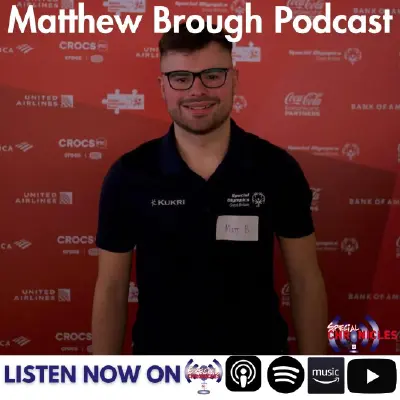
In this episode of the Special Chronicles Podcast, host Daniel Smrokowski sits down with Matthew Brough, an Athlete Leader from Special Olympics Great Britain, based in York, England.
Matthew’s journey began on the tennis court and led him all the way to the 2023 Special Olympics World Games in Berlin, where he proudly won gold and bronze medals. Since then, he’s completed his Athlete Leadership training, become an advocate in his local community, and shared his story through public speaking and media appearances.
Now working at The Grand Hotel in York and serving as a Level One tennis coach, Matthew continues to inspire others by breaking barriers and promoting inclusion wherever he goes.
💬 In this episode, Matthew discusses:
His athletic journey from local to global competitions
Lessons from the Berlin 2023 World Games
The power of Athlete Leadership training
Speaking to schools and the Youth Sport Trust
Career opportunities through Unified Leadership and Coca-Cola Europacific Partners
His goals for future speaking, media, and athletic opportunities
Whether you’re an athlete, coach, advocate, or ally, Matthew’s story is a reminder that with courage and opportunity, anything is possible.
Episode 775 ShowNotes & Links
Listen and Follow at SpecialChronicles.com/Pod
🎧 Available on Apple Podcasts, Spotify, YouTube, and wherever you get your podcasts
📺Like watching your podcasts? Watch Full Episode on YouTube
Get involved in Special Olympics Great Britain or Find Special Olympics Near You
Support This Podcast: Click Here to Donate Now and support the mission of Special Chronicles
➕Join SpecialChronicles+ PLUS! Go to SpecialChronicles.com/PLUS for our Premium Pre Show with behind the scenes podcast chats, exclusive bonus content, and to help support the show.
🛒Shop Our Merch: Shop Our Disabled Voices Matter Collection
📱Follow us on Socials: @SpecialChronicles
📧Email: Send us a message here
📧Newsletter: Subscribe to our Mailing List HERE
🎤Speaking Engagements with Daniel: Learn more and Book Daniel to speak HERE
💡Partner: ComEd EnergyForce
✈️Partner: United Airlines Bridge BRG
📻Podcast Hosting: Podbean
📡Recording Studio: StreamYard
🥇PSA: Sign the Inclusion Pledge Now!
Podcast Theme Music: “It Starts With A Voice” written by Amy Wright and performed by Ben Wright, co-founders of Bitty and Beau’s Coffee. Used with permission.
About the Podcast Host:
Daniel Smrokowski is a columnist and the founder and host of the award-winning podcast, Special Chronicles, which has released over 750 episodes in over 15 years. In recognition of these accomplishments, Daniel is a recipient of the Matthew Freeman Award for Social Justice for his efforts through media to give people with disabilities a voice. Read more about Daniel HERE
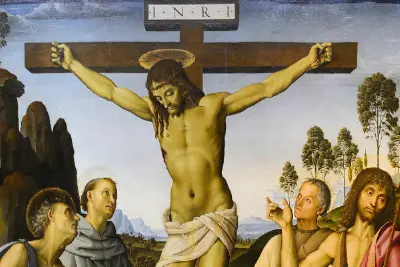
On April 28, 2025, Arizona pastor, Bill Schonemann, was found dead in his home. He had been crucified. His hands were pinned to the wall and he had a crown of thorns on his head.

Hosted by K'yuuhlgáansii ("Place of one's own",Haida) on Lingit Aani (Tlingit land) in Sitka, Alaska.
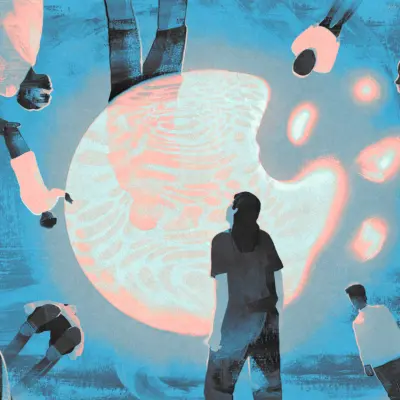
Today, we're releasing a special bonus episode featuring Emily and our "uncertainty correspondent" Alexa Miller, in conversation with the ABIM Foundation. Together, they reflect on the key insights from creating the Uncertainty in Medicine series. Thank you to the ABIM Foundation for hosting and recording this webinar. To sign up for a webinar in the future, visit buildingtrust.org/webinars. Find show notes, transcripts, and more at thenocturnists.org, and subscribe to our substack. The "Uncertainty in Medicine" series is generously funded by the ABIM Foundation, by the Josiah Macy Jr. Foundation, and the Gordon & Betty Moore Foundation. The Nocturnists is supported by The California Medical Association and donations from listeners like you. Host: Pamela Browner White Uncertainty Correspondent: Alexa Miller Series Illustrations by Eleni Debo

New Podcast from the COLD Team:Eric Robinson took 77 photographs on his last hike. Those images, recovered with Eric’s remains in 2016, tell the story of what he experienced on the Uinta Highline Trail. They also contain clues about why Eric diverted from the trail in his final hours. Dave Cawley follows those breadcrumbs to the brink in search of answers.See omnystudio.com/listener for privacy information.
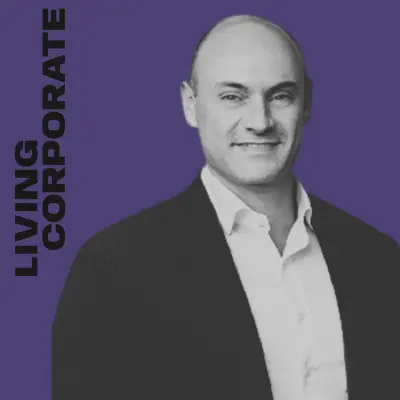
Zach sits down with Dr. Mario Ramirez, Managing Director of Opportunity Labs to talk about their first of its kind tool in the same of opiod safety in public schools.
Learn more about Opportunity Labs
https://www.opportunitylabs.co/
Check out our merch!
https://living-corporate-shop.fourthwall.com/
Learn more about Living Corporate's offerings and services.
https://www.living-corporate.com/about
Join our Patreon!
https://www.patreon.com/livingcorporate
